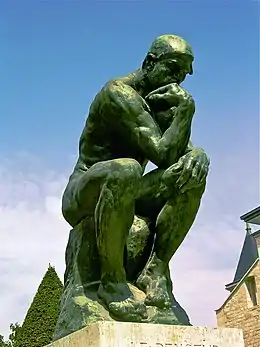Clear Thinking

This clear thinking curriculum is being developed as part of the Applied Wisdom curriculum to help people become more accurate and consistent in their thinking.
Reading this essay on the Height of the Eiffel Tower can provide a good starting point for these studies.
| Attribution: User lbeaumont created this resource and is actively using it. Please coordinate future development with this user if possible. |
These courses are available now and establish the core of the curriculum:
- Facing Facts — Embracing Reality
- Evaluating Evidence — Seeking Reality
- Seeking True Beliefs — Excellence in the Quest for Knowledge
- Exploring Worldviews — Challenging our deeply embedded assumptions
- Deductive Logic — Evaluating Consistency
- Recognizing Fallacies — Describing inconsistencies
- Knowing How You Know — Developing and applying your own Theory of Knowledge.
- Thinking Scientifically — Reliable ways of knowing
- Intellectual Honesty — Seeking Real Good Together
- Socratic Methods — Seeking real good by questioning beliefs
- Exploring Social Constructs — Constructing Reality
- Natural Inclusion — Experiencing the world from nature.
Courses in this curriculum address common core standards requirements for: Standards for Mathematical Practice » Construct viable arguments and critique the reasoning of others.
The following courses are proposed but yet to be developed:
- Forecasting with Bayes’ Theorem — Integrating Evidence
- Clarifying Probabilities — Using Natural Frequencies
- Understanding Risk — Exposure to loss
- Apportioning Blame — Analyzing Cause and Effect
- What There Is — Know what is real
- Inductive Logic — Evaluating expectations
- Cognitive Errors and Distortions — Circumventing Occlusions
- Rhetoric — Appraising the allure
- Analyzing Real Arguments — Evaluating rhetoric
Until the courses in this curriculum are complete, students may benefit from the courses now available in the Khan Academy Critical Thinking curriculum.
References
The following references are likely to be used in developing courses in this curriculum.
- Informal Logic, Stanford Encyclopedia of Philosophy
- Classical Logic, Stanford Encyclopedia of Philosophy
- Introduction to Logic and Critical Thinking, by Matthew J. Van Cleave
- Dobelli, Rolf (May 6, 2014). The Art of Thinking Clearly. Harper Paperbacks. p. 384. ISBN 978-0062219695.
- Cognitive bias cheat sheet, Because thinking is hard. Buster Benson
- More on cognitive biases.
- Fisher, Alec. The Logic of Real Arguments. Cambridge University. p. 234. ISBN 978-0521654814.
- Mental Models I Find Repeatedly Useful, Gabriel Weinberg, July 5, 2016
- Dennett, Daniel C. (May 5, 2014). Intuition Pumps And Other Tools for Thinking. W. W. Norton & Company. p. 512. ISBN 978-0393348781.
- Wilson, Edward Osborne (Mar 30, 1999). Consilience: The Unity of Knowledge. Vintage. p. 384. ISBN 978-0679768678.
- Core set of Critical Thinker's Guides.